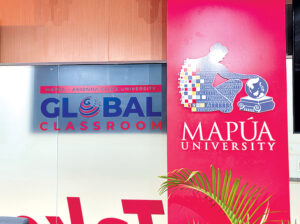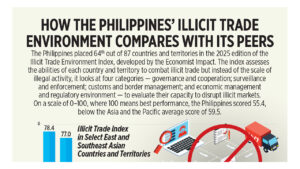Mapúa University pushes for creative thinking in Business Education

In partnership with Arizona State University (ASU), Mapúa is offering students a more interdisciplinary learning experience through courses that blend creativity, critical thinking, and technical skill.
Led by Prof. Corinne Romabiles, the initiative aims to equip future professionals with both analytical rigor and creative fluency, preparing them for a fast-changing world where storytelling, empathy, and culture are increasingly valued alongside strategy and execution.
The programs at Mapúa University E.T. Yuchengco School of Business, in collaboration with ASU, train students to develop agile, creative, and critical thinking skills to succeed in the rapidly changing tech-enabled business industry.
Prof. Romabiles noted this approach to business education is critical for students to develop a foundation that understands the importance of the arts and humanities. “I developed the art-science course to allow students who have probably not gotten so familiar with the humanities to know more about what the liberal arts is about,” she said.
As a business professor at Mapúa University E.T. Yuchengco School of Business, she teaches art-science thinking, or the meeting of art and science, to instill in her students the practice of combining both disciplines in crafting new ideas and innovations in their business strategies.
Through art-science, Prof. Romabiles aims to expose business students to art history, art theory, and art criticism in ways that they could apply to business practice. The ability to think outside the box, read between the lines of literature, comprehend trends in the past, and examine art forms critically hones their innovative thinking and decision-making.
“Art-science reintroduces creative thinking and artistic thinking to students. In courses that are not so familiar with humanities, sometimes, there is so much emphasis on math, science, or history that they forget that there is an intellectual side to the art,” she said. “Art-science is art studies at the service of the hard sciences.”
The university will also apply similar principles with its Global Classroom, which provides students with access to globalized and internationalized learning sessions at ASU. This enables them to immerse themselves in a different culture and hone their soft skills, encouraging them to go beyond conventional thinking and widen their perspectives on business knowledge and strategies.
“The course uses arts to develop critical thinking, so business students have better decision-making skills, and they can sharpen their higher order thinking skills,” Prof. Romabiles explained. She shared that it is also equally important to teach art-science in other programs, like Science, Technology, Engineering, and Math (STEM) courses.
In developing future business professionals, the Mapúa University’s E.T. Yuchengco School of Business collaboration with ASU trains students to find the balance between technical competence, and cultural and creative literacy. While financial models and statistical analysis will always be fundamental to business, the collaboration ensures that the value of the arts is never lost.
SparkUp is BusinessWorld’s multimedia brand created to inform, inspire, and empower the Philippine startups; micro, small and medium enterprises (MSMEs); and future business leaders. This section will be published every other Monday. For pitches and releases about startups, e-mail to bmbeltran@bworldonline.com (cc: abconoza@bworldonline.com). Materials sent become BW property.




